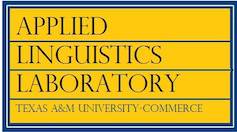“Spanglish”: Bringing the academic debate into the classroom. Towards critical pedagogy in Spanish heritage instruction
DOI:
https://doi.org/10.21283/2376905X.3.51Keywords:
SPANISH HERITAGE LANGUAGE INSTRUCTION, SPANGLISH, CRITICAL PEDAGOGYAbstract
The academic debate that seeks to categorize Spanish spoken in the United States is controversial. The North American Spanish Language Academy publication Hablando bien se entiende la gente, a reference guide for U.S. Spanish speakers, was the catalyst for a series of debates by academics holding one of two main stances: a) that Spanish in the United States is a universal language which should be devoid of excessive influence of English (Piña-Rosales, Covarrubias, Dumitrescu, & ANLE, 2014); and b) that Spanish in the United States is the reflection of its coexistence with English (Lynch & Potowski, 2014). While this academic conversation is important to the field, the debate has to be brought to the speakers themselves. This study presents a quantitative analysis of a judgment task completed by young heritage speakers of Spanish and a qualitative analysis of short-answer surveys. Results show that, despite participants’ high reported use of “Spanglish,” they vehemently reject its use in the academic context. This strong disconnect between practice and attitude raises serious concerns and has significant implications for pedagogy.
Downloads
Published
How to Cite
License
Copyright (c) 2015 Lina M. Reznicek-Parrado

This work is licensed under a Creative Commons Attribution 4.0 International License.


